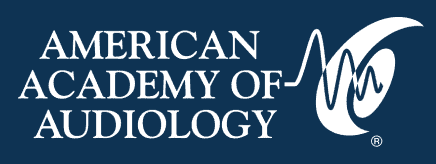by Melinda Anderson
The Academy’s Research Initiatives Committee is pleased to announce a new award for the Music and Hearing Research Grant Program. Promoting research in the profession of audiology is an important component of the long-range plan of the American Academy of Audiology. In support of this goal, the American Academy of Audiology and the American Academy of Audiology Foundation (AAAF) provide research funding through different grant programs. The Music and Hearing Research Grant program is a targeted effort to support research studies that will add to the body of knowledge and help to shape best practices in this area of audiology practice.
The Music and Hearing Research Grant Program awards up to $10,000 based on the merit of the research project and application. Grants may be made for basic research or clinical/applied research with an overarching purpose ultimately to benefit musicians and others who work in the music industry. Audiologist investigators and student investigators (a doctoral student working towards a doctoral degree in audiology or hearing science who is completing a research project as a part of their course of study) are eligible to apply to the program. Student investigators have an added requirement of having a designated mentor to guide the research project.
The Music and Hearing Research Grant Program is funded through the general sponsorship support of Michael Santucci, PhD. Dr. Santucci has dedicated his career to protecting the hearing of musicians through his own research and development work and promoting best practices in audiology. He recently led an Academy task force that prepared the recently released clinical consensus document titled Audiological Services for Musicians and Music Industry Personnel.
The Academy plans to launch the third cycle of the grant program with a request for applications in late spring 2022 with a summer submission deadline. Grants undergo peer review for the final selection in fall 2022.
2021 Grantee
The Research Initiatives Committee congratulates student investigator Allison Staker Woodford on the funding selection for her study Use of In-Ear Dosimetry to Understand Musicians’ Unique Sound Exposure (MUSE).

Ms. Woodford is a dual AuD and PhD student at the University of Texas Dallas. Through her clinical experiences, coursework, and AuD research project, she has developed a strong interest in hearing loss prevention, particularly music induced hearing loss, and has just started her PhD program.
Ms. Woodford’s primary mentor is Colleen LePrell, PhD, chair of the department of speech, language, and hearing at UT Dallas. Dr. LePrell identifies Ms. Woodford as “top of her class in her clinical thinking” and describes the MUSE study as s “highly meritorious, investigating individual variation in vulnerability to music induced hearing disorders.” Ms. Woodford’s second mentor for the study is Heather Mayuk, AuD, who offers her experience as both a performing music artist and an audiologist who provides hearing health care for musicians.
The MUSE research study will measure near-field and in-ear sound level exposure of musicians playing instruments near the ear, starting with the violin. Specific Aim 1 will assess bilateral sound level measurements collected inside and outside the ear. Potential sound level asymmetries will be measured in musicians playing their instrument using near-field and in-ear dosimeters. Bilateral transfer function of the open-ear (TFOE) measurements will be collected as an additional potential source of asymmetry.
Specific Aim 2 will compare the sound levels reaching the inner ear and the auditory function of the musician participants, assessing potential asymmetries and early warning signs of damage to the auditory system through high-frequency audiometry (HFA), distortion product otoacoustic emissions (DPOAE), and speech-in-noise testing.
MUSE will enroll musicians ranging from pediatric early music learners to adult professional musicians, providing a lifetime approach to musician hearing health. Building on previous research exploring sound exposure levels and music induced hearing disorders (MIHD), MUSE will look specifically at the sound level reaching the inner ear of musicians while playing an instrument to understand the levels experienced by the auditory system of each musician.
Melinda Anderson, PhD, is the chair of the Academy’s Research Initiatives Committee.
Recent Posts
ASLP-IC Readies for Rollout: Here’s What You Need to Know
The Audiology and Speech-Language Pathology Interstate Compact (ASLP-IC) continues to move toward full implementation, expanding opportunities for audiologists and speech-language pathologists to practice across state…
How Do Animals Perceive Music?
Music can be defined as vocal, instrumental, or mechanical sounds, with rhythm, melody or harmony, and often, an expression of human emotion. Music can transcend…
‘Eye’ on Health: AI Detects Dizziness and Balance Disorders Remotely
Interesting research led by audiologist Ali Danesh, PhD, at Florida Atlantic University (FAU) helped develop a novel, proof-of-concept tool to help identify nystagmus using a…





